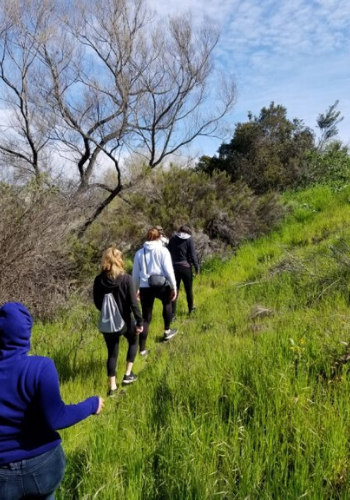Professors Receive Grant for Research on Homelessness During COVID-19
School of Public Affairs professors receive grant to research homeless during COVID-19

by Sofia Bert
May 8, 2020
May 8, 2020
In a time when everyone is told to shelter in place, social distance, and stay at home, what happens to the population that does not have a home?
School of Public Affairs researchers and professors Megan Welsh and Shawn Flanigan received a grant from the University of California Tobacco Related-Disease Research Program to pursue a study titled “Service Utilization and Survival Strategies of Unsheltered Homeless During the COVID-19 Pandemic.” This grant includes $16 thousand for the first six months of work, with the potential for renewal.
“We’re very interested in shelter uptake and service uptake. With COVID-19, there’s been a move to want people in shelters and bringing people in hotel rooms. We’re curious how often people are being reached with those offers and how often they take up those offers. Do they want to take advantage of them? Or are they being pressured to by the police?” said Flanigan.
This study will be conducted by cell phones through Short Message Service (SMS) messages as well as Qualtrics, a web-based survey, creating an opportunity to interview people while remaining socially distant.
Flanigan said that a common misconception about people facing homelessness is that they don’t have cellphones. She said that there is a government program that provides people with cellphone access, but that many may not have easy access to the internet during the shelter-in-place order.
“We are hoping to get around 500 responses from people living unsheltered in San Diego” said Welsh. “We know from our past research with people staying near the San Diego River that people rely heavily on local businesses and libraries for their wifi access, among other things like bathrooms. With those resources being closed, we suspect that while most folks have cellphones, they might not have access to the internet.”
Flanigan and Welsh’s goal is to use this research to help understand people facing homelessness and use the data to help inform policymakers.
“Oftentimes really well-intentioned people like ourselves and policymakers come up with these great ideas to help a vulnerable population, but sometimes we don’t take into account people’s lived experiences and their wisdom about what keeps them safe and healthy,” said Welsh.
“I think we can provide better services if we understand what people need,” said Flanigan. “In the case of infectious disease, maybe it is better for someone to live in their car, or a tent next to the river might seem better than being in a crowded shelter.” Welsh and Flanigan noted that these possibilities are highlighted in the Centers for Disease Control and Prevention’s (CDC) guidelines for how cities should address homelessness during the pandemic.
Welsh said that this may be an opportunity for shifts in policy and service provision around homelessness.
Welsh is teaching a service-learning course in Fall ‘20 on homelessness and criminalization during the pandemic. Welsh believes that she and Flanigan will conduct more research in the fall, and students will be able to assist with data analysis, follow up phone interviews, and helping write a public report on the findings.
“We love including students in our research and we are always looking for opportunities to do so,” said Welsh.
If you or someone you know is experiencing homelessness during this time, please visit the SDSU Economic Crisis Response Team or the San Diego County housing and shelter website.
The content within this article has been edited by Lizbeth Persons.
More PSFA Stories